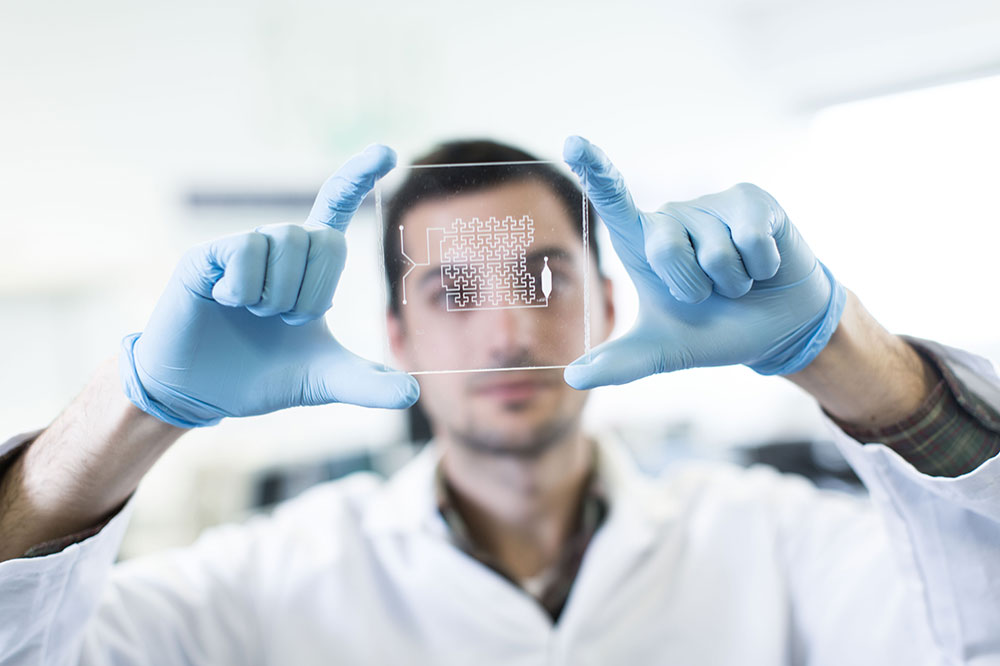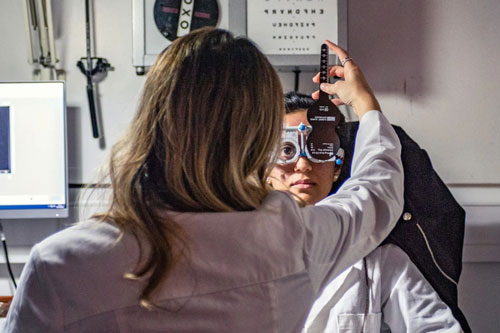Overview
The Centre for Digital Healthcare Technology (CDHT) is a £45 million flagship innovation project led by Ulster University and funded through the Belfast Region City Deal, the Northern Ireland Executive, and the UK Government.
Positioned at the intersection of health, technology, and innovation, CDHT is designed to transform how medical technologies are created, tested, and delivered. The centre brings together academic researchers, clinicians, and industry partners to accelerate the design, development, and commercialisation of next-generation MedTech and digital healthcare solutions.
Located in Belfast city centre, CDHT will feature a state-of-the-art Open Innovation Centre and Community Living Lab on Frederick Street, adjacent to Ulster University’s Belfast campus, as well as a Clinical Living Lab located within the Belfast Health and Social Care Trust. Together, these facilities will form an exciting innovation ecosystem to deliver better healthcare outcomes, new economic opportunities, and global recognition for Northern Ireland as a leader in digital healthcare.
The Challenge
Health systems worldwide are facing escalating pressures from ageing populations and rising chronic disease to the urgent need for cost-effective, patient-centred care. At the same time, the development pipeline for new medical technologies remains slow, fragmented, and difficult to navigate.
In Northern Ireland, there is a growing recognition that the region’s strong academic and clinical base can be better harnessed to address these challenges. The Centre for Digital Healthcare Technology responds directly to this need by:
- Creating a collaborative space where academia, industry, and clinicians co-develop solutions in real clinical settings.
- Accelerating the translation of research into market-ready products that improve patient care and reduce strain on healthcare systems.
- Building a skills pipeline to prepare the next generation of innovators, engineers, and clinicians for the MedTech economy.
- Strengthening Northern Ireland’s life sciences cluster, positioning it as a global hub for digital health innovation and foreign direct investment.
Through these interventions, CDHT aims to drive inclusive economic growth while delivering tangible societal impact.
Partnerships
CDHT is an Ulster University-led initiative developed in close partnership with the Belfast Health and Social Care Trust. It is supported by funding from the Belfast Region City Deal, the Northern Ireland Executive, and the UK Government, with engagement from industry partners and entrepreneurs across the MedTech and digital innovation sectors, including the Belfast Health and Social Care Trust.
By co-locating expertise from engineering, data science, clinical practice, and business, CDHT establishes a unified ecosystem where new technologies can move seamlessly from concept to clinic. The project aligns closely with Northern Ireland’s economic strategy, the UK’s Industrial Strategy for Life Sciences, and Belfast’s Smart Innovation agenda, ensuring it contributes directly to regional and national priorities.
Research
Ulster University’s research excellence in biomedical engineering and digital health provides the foundation for CDHT. Building on a 25-year legacy of innovation through the Nanotechnology and Integrated Bioengineering Centre (NIBEC), CDHT brings together expertise in sensors, diagnostics, data analytics, and medical devices to transform how healthcare technologies are conceived and delivered.
Ulster University’s researchers have pioneered advances that have achieved global commercial and clinical impact from the development of the world’s best-selling disposable ECG electrode to the creation of successful spin-out companies such as Intelesens and HeartSine, both of which grew from Ulster University research into international MedTech brands. Intelesens’ wearable cardiac monitoring technology, acquired by New York-based UltraLinq Healthcare, and HeartSine’s defibrillator technology, now part of Stryker’s global portfolio, exemplify the university’s ability to translate research into life-saving innovation.
The team’s expertise has also been recognised internationally, with researchers achieving a top-three global finish in the $10 million Qualcomm Tricorder XPRIZE, developing diagnostic sensors capable of monitoring multiple vital signs autonomously. These innovations have inspired the creation of Pulse-AI, a new start-up focused on artificial intelligence in cardiac signal analysis, while Ulster University’s ECG signal processing algorithms have been adopted by the US Food and Drug Administration (FDA).
Together, these research capabilities position CDHT and Northern Ireland at the forefront of connected health and medical technology innovation on a global stage, linking discovery to delivery for the benefit of patients, the economy, and society.
Impact
The Centre for Digital Healthcare Technology will deliver far-reaching economic, social, and healthcare benefits:
- Economic growth and jobs: creation of new high-value MedTech roles and expansion of Northern Ireland’s innovation economy.
- Innovation pipeline: faster development of new healthcare technologies, enabling companies to reduce time to market and attract investment.
- Improved patient outcomes: accelerated adoption of technologies that enhance diagnosis, monitoring, and treatment.
- Skills and training: a pipeline of graduates, researchers, and entrepreneurs skilled in digital healthcare and data science.
- Place-based regeneration: the establishment of a major innovation hub in Belfast city centre, driving collaboration and community engagement.
By aligning research excellence with clinical impact, CDHT will help redefine how health innovation is delivered in Northern Ireland, creating a connected ecosystem where ideas become solutions that directly benefit patients and society.
Professor James McLaughlin, Project Lead for the Centre for Digital Healthcare Technology:
“The Centre for Digital Healthcare Technology is about transforming how innovation happens in healthcare. By embedding collaboration between researchers, clinicians, and industry from the outset, we can move faster from idea to implementation, delivering smarter, safer, and more affordable solutions for patients locally and globally.”
Professor Liam Maguire, Pro Vice-Chancellor for Research, Ulster University:
“CDHT represents the next step in Ulster University’s ambition to position Northern Ireland as a world leader in digital healthcare innovation. Through the Belfast Region City Deal, we’re creating a thriving ecosystem that not only drives economic growth but also delivers real improvements in the quality of care and life for people across the world.”




